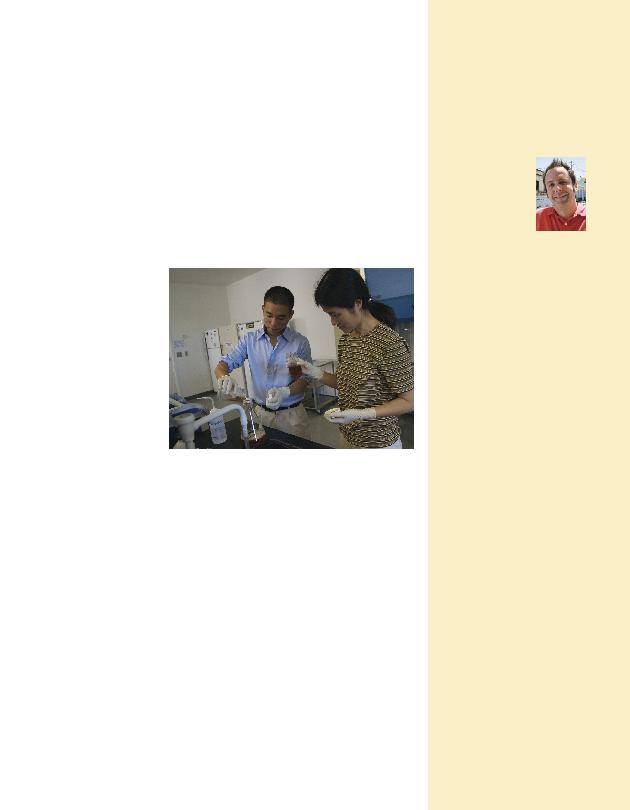
sor of English, has been awarded
a Robert L. Platzman Memorial
Fellowship for use between Jan. 1
and Dec. 31, 2012. The short-
term grants provide support for
visiting researchers;
this year's group
will consult printed
and archival collec-
tions in a wide
range of disciplines
including anthro-
pology, the history
of medicine, sociology, literature,
rhetoric and history. Ellis will
consult the Sir Nicholas Bacon
Collection of Court and Manor-
ial Documents for a study of
"The Tudor Statesman at Home:
Political Orators and the Rheto-
ric of Domesticity." He will be
the Hans Lenneberg Fellow in
honor of the Library's distin-
guished Music Librarian. The
study will form part of Ellis' book
project, which focuses on 16th
century English rhetoric and poet-
ics.
"Voices of Ancient Greece and
Rome: Contemporary Accounts
of Daily Life," was published by
ABC-CLIO/Greenwood. Matz is
a member of the Department of
Classical Languages.
fessor of English, authored two
published pieces about Benjamin
Franklin. The chapter "Benjamin
Franklin's Material Cultures"
appeared in "A Companion to
Benjamin Franklin" (Ed. David
Waldstreicher. Oxford: Blackwell
Publishing, 2011. 412-29).
the Classroom: Teaching Early
American Literature with Digital
Archives" appeared in Teaching
American Literature: A Journal
of Theory and Practice [5.1
(2011): 1-11].
grant has funded Dr. Xiao-Ning
Zhang's continued research using
tion of RNA splicing in the plant. With
these new resources, the biology profes-
sor has been able to expand her research
in many new directions.
some new things and then
got very interesting results.
From these results we get
new leads for further re-
search," said Zhang. While
in the lab, Zhang and her
students observe interest-
ing phenomena within the
Arabidopsis plant and
then attempt to discern a
connection between their
findings and specific gene
expressions. Additionally,
she continues to observe
the specific splicing factor,
which her research has
been centered on since the
beginning.
a 400-level biology elective, Plant Develop-
ment and Physiology, Zhang introduced
her research to students. The goal, she
said, is "to use what we learn from the lec-
ture to characterize the mutant (being in-
vestigated)."
leaders," preparing the lab with Zhang and
then delivering it to the remaining class.
"In the past, students (have gone) through
the whole semester 10 labs and after
one year, they forget everything," ex-
plained Zhang. "But this way they spend (a
greater amount of time) understanding one
lab, and because experimental designs are
similar, when they understand one, they
can apply (their knowledge) to other labs."
allowed Zhang to buy more expensive
"PCR machines, which amplify DNA, al-
lowing for better observations; a growth
chamber, which allows plants to grow in a
controlled environment for scientific stud-
ies; and centrifuges, which make the molec-
ular work possible."
pensive research possible without the use
cost approximately $1,000 per item. Addi-
tionally, the grant allowed for Zhang and
one student to travel to Minneapolis to
present their research at an international
conference.
grant, which Zhang believes is incredibly
important. After federal work study and
other forms of financial aid run out, senior
students who conduct research in the lab
are paid using the grant. Zhang hopes "this
helps students gain some work experience
in a biological research setting, establish a
sense of responsibility and cultivate a good
work ethic."
expanded the possibilities of research at St.
Bonaventure, which has many practical ap-
plications. The expanded study of these or-
ganisms can ultimately lead to a better life
for all human beings.